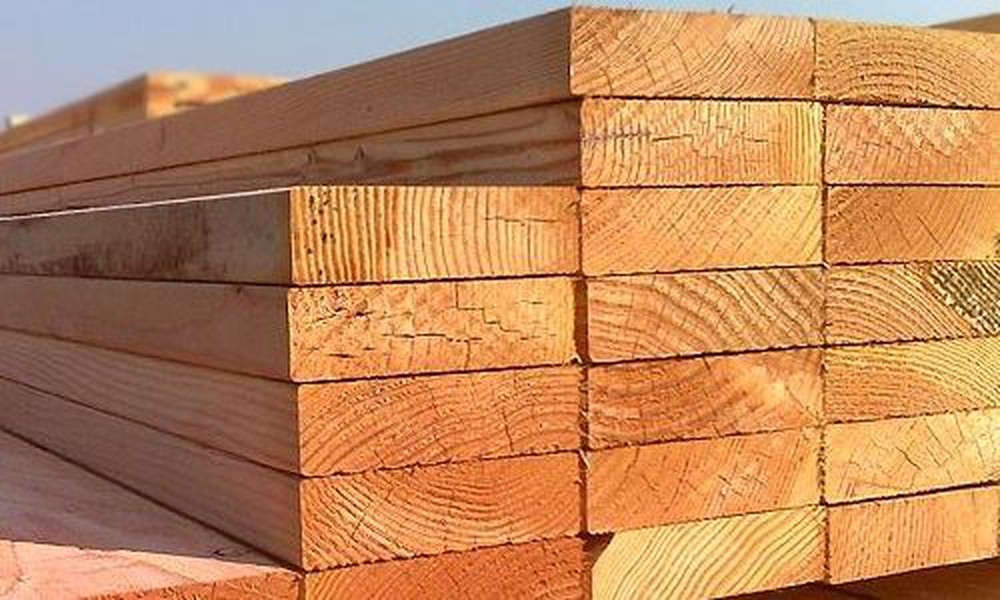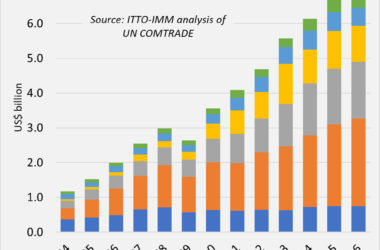Vietnam is now one of the most important suppliers of plantation Eucalyptus and Acacia wood chips to the pulp industry in both Japan and China, according to an industry report.
The country has expanded shipments gradually over the past six-years and is now the world’s fourth largest hardwood chip exporter.
Vietnam has become a major exporter of wood chips in a short period of time. In 2002, the country exported only 150,000 metric tonnes of wood chips and was a marginal supplier at the time. In 2008, the country became the fourth largest exporter of hardwood chips in the world, with an estimated volume of two million tonnes being shipped, mainly to Japan and China, Wood Resource Quarterly (WRQ) said.
The interest from farm households in planting trees has turned around quite dramatically the past decade. In the 1990’s and early 2000, production of rice, livestock and tea generated more profits than timber, with the consequence that farmers converted forestland to farmland. This changed when the wood chip exports took off in 2002-2003. Many farmers are now planting trees as the profitability is considered very good compared to many other crops.
The number of woodchip mills has exploded in Vietnam from only 15 plants in 2003 to currently 50 wood chip mills along the 3500 kilometres-long coastline. The chip mills typically have a annual capacity between 50,000 and 150,000 tonnes, but many of them are currently running at a reduced rate due to a lack of logs. Total chip production is estimated to be close to two million tonnes, while capacity is somewhere between three and four million tonnes.
Wood chip exports, of which a majority is Acacia, has steadily gone up the past five years. The two major destinations have been Japan and China, with Taiwan and South Korea accounting only for about 10% of total shipments.
The average cost of hardwood chips from Vietnam to Japan was US$169/metric tonne (CIF) in the 4Q/08 according to the Wood Resource Quarterly. These were among the lowest-cost chips imported to Japan last year, with only chips from Malaysia and Thailand being cheaper.
Without doubt, the forest industry is growing in importance in Vietnam and the country is expanding its domestic timber resources to be less dependent on imported wood rawmaterial in the future. Wood chip exports will probably increase in the short-term but with the pulp industry in expansion mode over the next few years, wood chips shipments to Japan and China may decline long-term.
Source: Wood Resource Quarterly


































